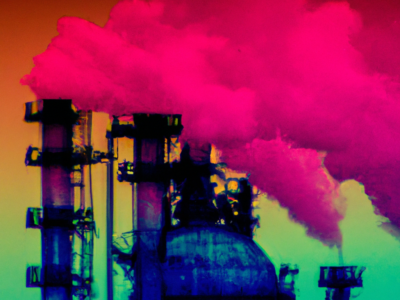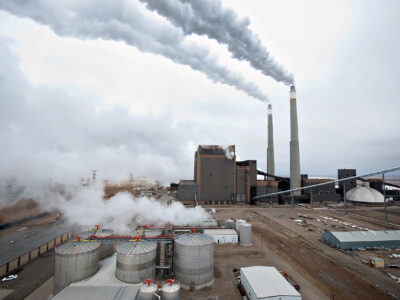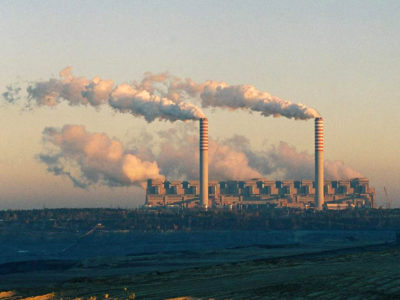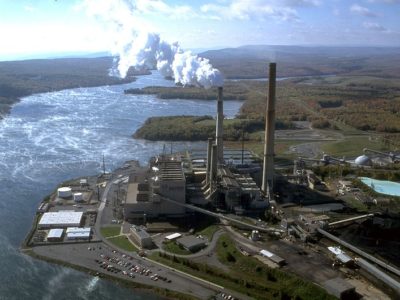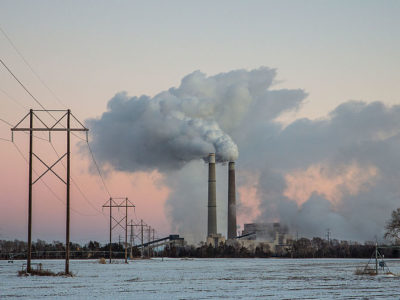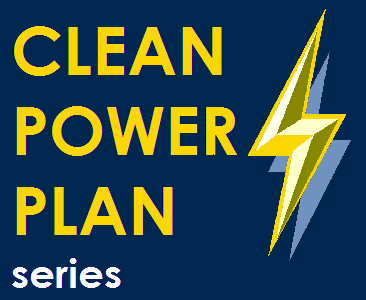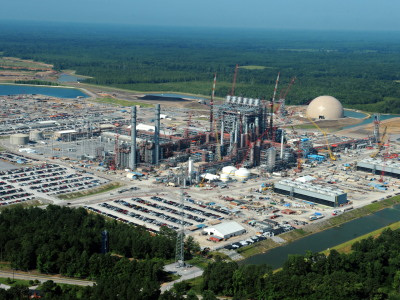CCS
Is “carbon management” just another COP-out?
Fudging the differences between carbon capture and carbon removal risks weakening climate action
Emissions cuts alone will (almost certainly) not keep the global average temperature rise below 1.5°C. But some optimism remains. Alongside a rapid phase-out of fossil fuels, substantial deployment of carbon dioxide removal (CDR) techniques might avert – or at least limit – overshoot of 1.5°C. At COP 28 this week the US and several partners …
Continue reading “Is “carbon management” just another COP-out?”
CONTINUE READINGThe Utility Response to EPA’s Climate Rules
The power industry apparently shares some progressive doubts about CCS and hydrogen
There are three big takeaways from the utility industry’s comments on EPA’s proposed new climate rules. First, the industry seems to share progressive concerns about whether we can count on hydrogen and CCS (carbon capture and sequestration). Second, the industry doesn’t invoke the major question doctrine, making it clear that it does not view such …
Continue reading “The Utility Response to EPA’s Climate Rules”
CONTINUE READINGThe Biden Power Plant Rule and the Major Question Doctrine
The new rule has hardly any of the features that caused the Supreme Court to strike down the Obama rule.
We’ve already started to hear claims that the Biden power plant rule falls under the major question doctrine, which the Supreme Court used to strike down Obama’s Clean Power Plan. Are those claims plausible? Consider the aspects of the Clean Power Plan that the Supreme Court found objectionable. I’ve identified eight factors that the Court …
Continue reading “The Biden Power Plant Rule and the Major Question Doctrine”
CONTINUE READINGIRA’s Impact
The new law is a Big Deal. Or more precisely, a REALLY Big Deal.
IRA, the Inflation Reduction Act, is clearly the biggest climate legislation ever passed in the United States. The law will provide $379 billion in subsidies to clean energy in the form of direct payments and tax credits. Subsidies aren’t the ideal way to cut emissions, because it’s impossible to target them to the precise behavioral …
Continue reading “IRA’s Impact”
CONTINUE READINGA Great Day for Climate Policy
A short video explainer of why passage of the IRA bill is such a big deal.
We all have something to celebrate with the House passage of the IRA on Friday. Getting it passed required some difficult compromises, but the bill represents a major step forward. Because of the Mar-a-Lago search, it hasn’t gotten nearly as much attention as it deserves. If you don’t have time for a lot of details, …
Continue reading “A Great Day for Climate Policy”
CONTINUE READINGEPA Shouldn’t Roll Back Coal Power Plant Emissions Standard, Conclude Experts in Electrical Grid Management and Pollution Control Technology Innovation
Emmett Institute Faculty File Two Comment Letters on Behalf of Experts, Demonstrating Flaws In Proposed Rollback of New Source Performance Standard for New Coal-Fired Power Plants
In 2015, EPA set greenhouse gas emissions standards for new coal-fired and natural gas-fired power plants under the Clean Air Act’s New Source Performance Standards program, Section 111(b) of the Act. These standards ensure that new plants can be built only if they incorporate state-of-the-art emissions controls. Unfortunately, in late 2018, the Trump Administration EPA proposed …
CONTINUE READINGUpdate on the Litigation Over EPA’s Rule Controlling Greenhouse Gas Emissions from New Power Plants
UCLA Faculty File Amicus Brief on Behalf of Technological Innovation Experts
Late in 2015, the Environmental Protection Agency issued New Source Performance Standards to control greenhouse gas emissions from new and modified fossil-fuel-fired power plants under the Clean Air Act. This regulation is a companion to the more-often-discussed Clean Power Plan rule, which addresses greenhouse gas emissions from existing sources in the power generation sector. Last …
CONTINUE READINGExploring Potential Challenges to EPA’s New Source Performance Standard: PART III
CCS for coal power plants, but not natural-gas power plants?
This post is the third in a mini-series (see first and second posts) exploring likely legal challenges to the New Source Performance Standard (NSPS) for power-plant greenhouse gas emissions under Clean Air Act § 111(b), and how those challenges might affect the Clean Power Plan. In my first post on EPA’s New Source Performance Standard …
Continue reading “Exploring Potential Challenges to EPA’s New Source Performance Standard: PART III”
CONTINUE READINGIs Carbon Capture & Sequestration (CCS) the Biggest Threat to the Clean Power Plan?
Exploring potential challenges to EPA’s New Source Performance Standard: PART I
This post is the first in a mini-series exploring likely legal challenges to EPA’s New Source Performance Standard (NSPS) for power-plant greenhouse gas emissions under Clean Air Act § 111(b), and how those challenges might affect the Clean Power Plan. I will leave detailed exploration of the Clean Power Plan for later posts, but suffice …
CONTINUE READINGCalifornia’s Path to 2050
Recent research shows that California can meet its 2050 climate goals at an affordable cost.
Could California make deep cuts in carbon by 2050 (80% below 1990 levels)? Are the economics feasible? Those are important questions for California, but they also have a lot to say about what’s feasible for the U.S. and other developing countries as a whole. Last December, UC Davis hosted a forum on the models that …
Continue reading “California’s Path to 2050”
CONTINUE READING




